Had a fantastic day at the beach and now trying to have a chat and you can’t hear anyone properly? It is quite common among surfers, snorkelers and scuba divers. You don’t want to be the person hopping around on one leg whacking yourself in the head trying to get the water out. Water in your ear is very common, yet a little annoying. That’s why a lot of people ask me how long can water stay in your ear?
How Long Can Water Stay in Your Ear?
Most commonly water can remain in your ear from several hours up to 1-2 days. It depends on the person and their ear anatomy as well as earwax production. Furthermore, it will depend on the intensity and type of water activity.
Symptoms
The first symptom of water stuck in your ear is often a full feeling of one or both ears. Almost as if something is gently pushing against your ear drum. Sounds appear distorted, alternating between loud and muffled.
If you can’t get water out of ear, you might be at risk of swimmer’s ear or otitis externa. Symptoms of swimmer’s ear include:
- Inflamed and itchy ear canal
- Mild pain in your outer ear and near your eardrum
- Clear drainage from your ear canal
This is most common when water is unable to drain within a few hours. Water stuck in your ear canal provides an ideal breeding ground for bacteria to grow. This can lead to more severe ear infections.
Ear Pain
If you are experiencing pain in your ear you need to contact your doctor immediately. Mild swimmer’s ear if ignored can turn into an ear infection. If left untreated these can lead to permanent damage to your ears resulting in hearing loss.
Feeling water in ear for days, or even water stuck in ear for weeks is definitely a warning sign to see a doctor. Some people even report water in ear for months. In this case, there might be a more severe cause and we recommend seeing a doctor immediately.
How to get water out of your ear when nothing else works?
It can be rather annoying to have blocked ears for several hours every time you hit the water. But there is no easy way to prevent water from getting stuck in your ear apart from avoiding the water altogether.
Some people recommend using special earplugs for water activities.
Alpine SwimSafe Swimming Ear Plugs
- Waterproof Ear Plugs for Swimming
- Keeps Water Out and Prevents Swimmer’s Ear
- Comfortable Hypoallergenic Swim Ear Plugs
- Reusable Earplugs for Swimming
Just remember that these are impractical for scuba diving. Being able to equalize easily is paramount when free diving or scuba diving. These earplugs are best for swimming or splashing around in a pool or at the beach!
If you are planning on descending and going underwater, then there are special scuba diving masks that keep your ears “dry” when diving. You will need to ensure there is a proper seal around your ears for these to work.
IST ProEar Dive Mask with Ear Covers
- EASY CLEARING — Unique tube & seal system makes equalizing easier.
- PREVENTS EAR ACHE — Eliminates pressure-induced ear pain.
- BETTER HEARING — Enhances sense of sound under water.
- WATERTIGHT CUPS — Keeps water out and prevents Swimmer’s Ear.
- COMFORTABLE FIT — Head strap maximizes surface area to eliminate squeezing or pinching
So if it is severe, how do doctors get water out of your ear? They use a number of techniques such as positioning your head in a way to have water drain more efficiently. They use massage techniques on your eustachian tube to aid your body by dislodging the water. Sometimes they might even gently suction the water out using their hands to create a vacuum.
So what can you do yourself?
From experience the most effective methods to clear water out of your ears are:
- Laying down and let the water drain
- Spend time in an air-conditioned room since the dry air will help evaporate the water
- Carefully using a hair dryer or warm towel to lay on in order to warm the air and evaporate the water
A lot of new scuba divers are prone to having water stuck in their ears for a few hours after their confined sessions or first ocean dives. This is often caused by their prolonged efforts to equalise their ears. This can sometimes lead to slight inflammation of the ear drum and canal or swelling of the eustachian tube. This can lead to narrower passages or water getting stuck due to its surface tension.
In most cases my advice is to lay down on that side and let it drain naturally or use the air-conditioner for a few hours. Especially diving in tropical Thailand, where the humidity is often in the high nineties. You can read more tips on how to get rid of blocked ears after diving.
You asked how long can water stay in your ear? In short, it should not stay in your ear for more than a few hours. If any symptoms arise such as itchiness and discomfort after several hours, you might be getting swimmer’s ear. In this case, consult a doctor.




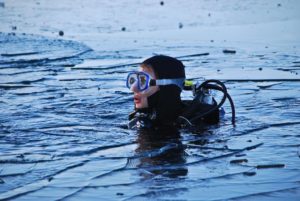

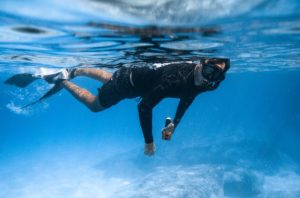
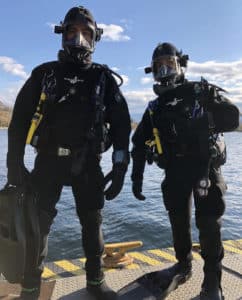
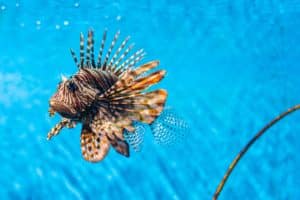
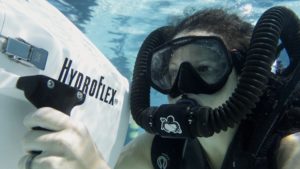







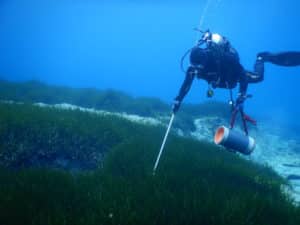

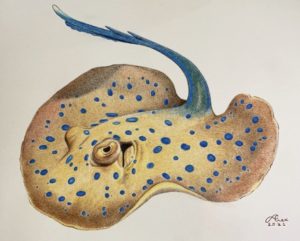
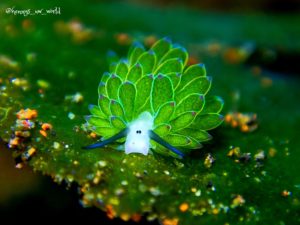



Leave a Reply
You must be logged in to post a comment.